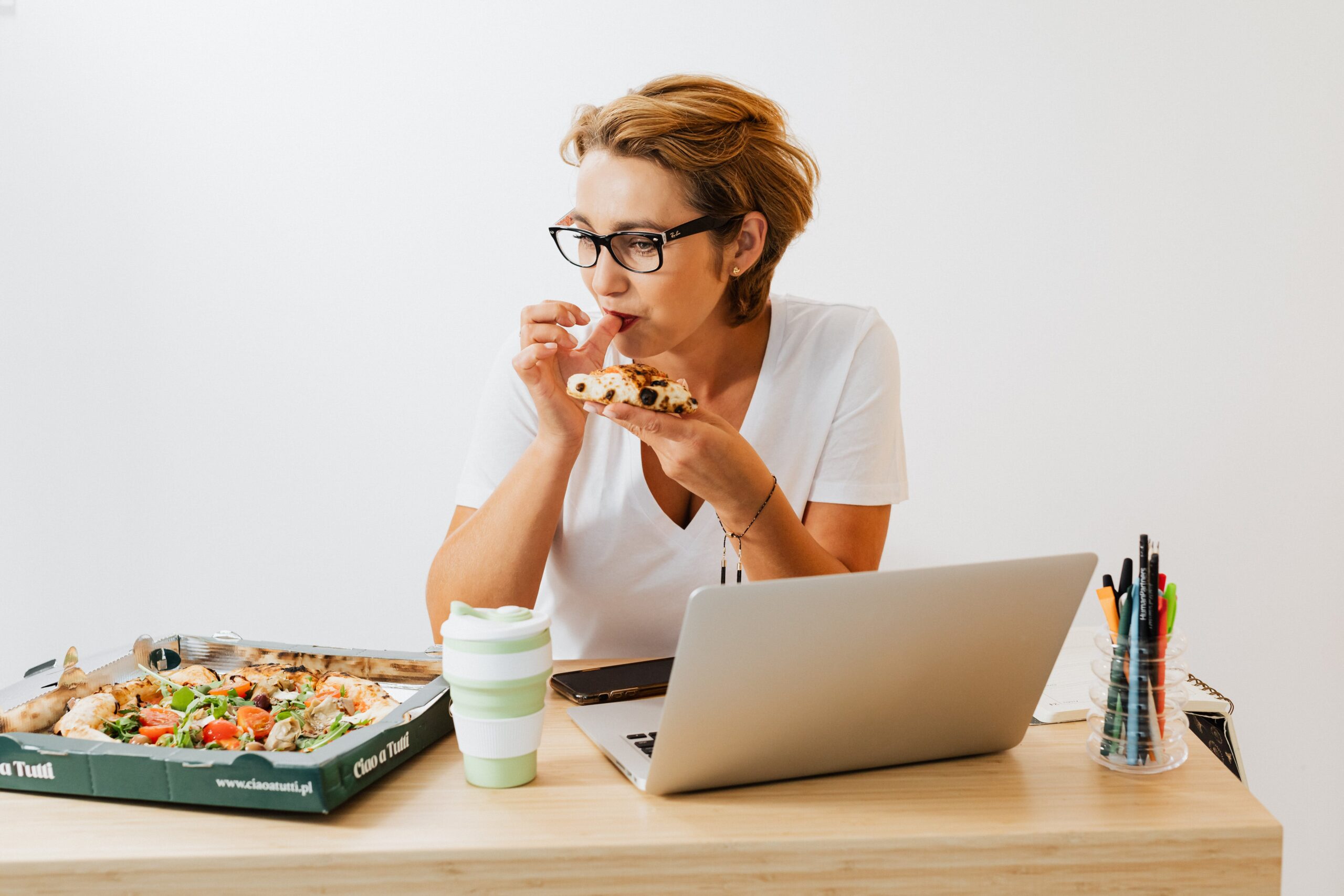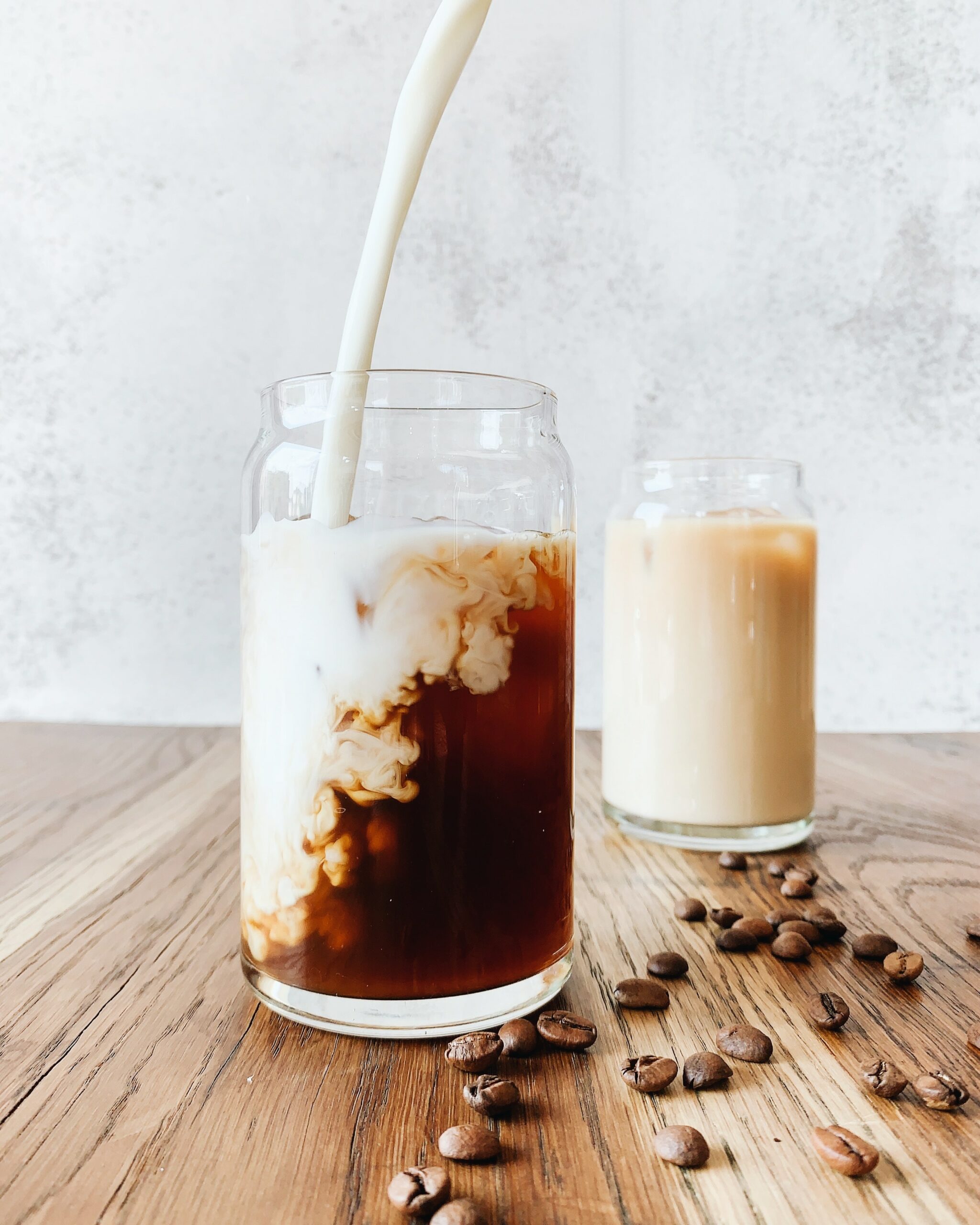Do you experience any of these issues?
- You eat a delicious meal and afterwards your stomach feels like you are 5 months pregnant.
- You start the day off great but your bloating progresses as the day goes on and you are more and more uncomfortable.
- When you eat a certain food you’ve started to notice that your stomach feels off… or maybe you get a stomach ache.
- You regularly experience acid reflux
- You don’t go #2 every day
- You burp a lot
If you regularly experience bloating, gas, constipation, indigestion, or an upset stomach, it’s likely a sign that your digestive and gut health needs some TLC.
When your digestion is off, it can affect every area of your life. The good news is, there is a lot you can to do improve your digestion and gut health and start feeling more comfort. Here are 5 tips to get started with:
1. Chew your Food
I know you are thinking…. duh… of course! But seriously, a lot of digestive problems can simply be fixed by chewing your food more before you swallow. Breaking down food through chewing is the first step in the digestive process. When you skip it, the rest of the digestive process will be burdened and may not work as well and it can lead to gas and boating especially.
Most people rush through their meals and chew only 5 times before they swallow. You need to chew your food around 20-30 times, depending on what you are eating. Seriously. Next time you sit down for a meal, notice how many times you chew and try to chew for longer.
2. Eat in a Calm Environment
This means sitting down to eat your meal (not eating while working or doing something else). Ok… I know this one can be hard for families because dinner times can be chaotic with kids or teens but try your best. The key is to take a moment to simply relax into your body, and take a few slow deep breaths (prayer before eating has this effect too, if that fits for you). You want to put your body into the “rest and digest” state. Stress actually sends blood away from the digestive system and slows down the release of stomach acid – not good for digestive health at all!
3. Avoid Drinking Too Much With Meals
Some people like to drink quite a bit with meals. This can actually be a major cause of bloating and gas. You can drink a little with meals but it’s best to avoid too much liquid about 30 mins before you eat and while you are eating. When you drink a lot of liquid with your meals, it can dilute the digestive enzymes in your stomach and intestines, making it harder for your body to break down and absorb nutrients from food.
4. Eat Fibre Rich Foods to Feed Your Gut Bacteria
High-fiber foods like fruits, vegetables, beans and legumes, chia and flax seeds promote healthy digestion by preventing constipation and supporting a diverse gut microbiome. You want to aim for between 25g – 35g of fibre per day. Some of my favourite high fibre veggies are collard greens, swiss chard, and broccoli. You can also add a prebiotic fibre supplement to your regimen – I like the Renew Life Clear Fibre. Note – if you don’t eat a lot of fibre now, you want to slowly increase your intake. Your gut will need some time to get used to the added fibre (otherwise it too can cause bloating and gas).
5. Increase Prebiotic Foods
Fermented foods are fabulous for your gut health. Foods like yogurt, kefir, raw fermented veggies (sauerkraut, kim chi, miso, kombucha). Eat one of these a day to support a healthy gut!
Try these and see how you feel. I guarantee you will be feeling much better and experiencing a lot less digestive troubles.


